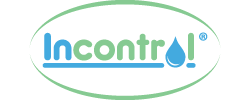What is Pregnancy Incontinence?
Posted by Kevin on 2021 Apr 1st
Pregnancy incontinence is simply any type of incontinence that occurs as a result of and in the time surrounding a pregnancy. Often hormonal changes and extra pressure on the bladder due to the added weight of the uterus affect bladder functioning both during and after pregnancy. An estimated 40% of women experience urinary incontinence during pregnancy. Among pregnant women over the age of 35 and overweight women, that percentage is even higher.
In most cases, full recovery may take up to six months after delivery, although most symptoms are relieved within 6 weeks. Some women suffer longer, some even for the rest of their lives if their symptoms go untreated.
Causes of pregnancy incontinence:
Incontinence during pregnancy is caused in part by changing hormones. While hormonal changes ensure that the muscles in the urethra and pelvic floor are stretched for the delivery of the baby, they also cause weakening of the pelvic floor muscles. The weakening of these muscles can lead to incontinence.
In addition, after about three months of pregnancy, the weight of the uterus starts putting pressure on the bladder, causing it to feel full faster and faster. Incontinence and leakage may occur if the pressure on the bladder becomes too great. This can happen, for example, during laughter, coughing or other physical exertions. That is why some women experience stress incontinence during and after pregnancy.
Stress incontinence is more common towards the end of pregnancy, and affects up to 50-70% of pregnant women.
Solutions for pregnancy incontinence:
Incontinence during pregnancy is very common and generally goes away within 6 weeks after childbirth, once the muscles have had some time to heal. Recovery after pregnancy takes time. The muscle tissue will automatically regain strength within the months following delivery. Most symptoms will be gone within 6 weeks, while full recovery can take up to 6 months.
Luckily, there are strategies for preventing incontinence and for helping with recovery after childbirth. Remember that it may not be possible to prevent leakage entirely, but these strategies can help make recovery easier and faster. Pelvic floor exercises can promote recovery, and can be started before or during pregnancy. By doing exercises daily, the risk of incontinence and the symptoms can be reduced.
Seeing a physical therapist can help you to find the right exercises. A physical therapist can also give personalized advice on finding the correct toilet position, general toilet behavior or eating and drinking habits.
Contrary to what many people think, it is very important to keep drinking enough. Dehydration can lead to bladder irritation and infections, making the incontinence symptoms worse.
Sources:
https://www.abena.com/knowledge-center/continence-care/types-of-incontinence/pegnancy-incontinence
 USD
USD  CAD
CAD
 Euro
Euro
 British Pound
British Pound

